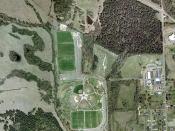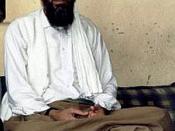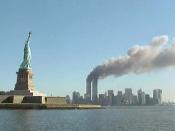Who Are the Taliban? Since seizing most of Afghanistan in 1996, the regime faction called the Taliban has formed one of the most notorious governments in history. Though the organization currently holds over 90% of the country's territory, their policies, particularly their treatment of women and support of terrorism, have ostracized them from the world community. The Taliban, whose name means "Students of Islamic Knowledge," are one of the "mujahideen" groups, or holy warriors, that formed during the war against the Soviet occupation of Afghanistan (1979-1989).
After the withdrawal of Soviet forces, the Soviet-supported government was dominated by the Mujahideen (Marsden 36-43). In 1992, Afghanistan's capital city, Kabul, was captured and an alliance of mujahideen formed a new government with Burhanuddin Rabbani as interim president. However, the various factions were unable to cooperate and fell to clashes with one another. Afghanistan condensed into a pool of territories held by opposing warlords.
Groups of religious students, sometimes referred to as "taliban," were organized on a regional basis during the occupation and civil war. Although they represented a potentially large force, they were unable to emerge as a united entity until the taliban of Kandahar came forward in 1994 under the loose leadership of Muslim teacher Mullah Muhammad Umar. In late 1994, a group of well-trained taliban were selected by Pakistan to protect a convoy trying to open a trade route from Pakistan to Central Asia. They proved to be an able force, defeating rival mujahideen. The taliban went on to conquer the city of Kandahar, launching an unexpected advance that ended with their capture of Kabul in September 1996, after which the Taliban of Afghanistan officially came to power (Maley 89-92).
The Taliban's instant popularity with the Afghan people surprised the nation's other warring factions. Many Afghans, disillusioned by conflict and...


